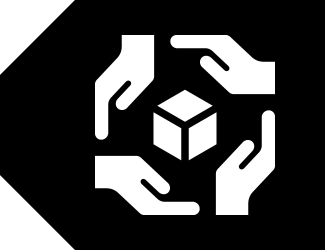
TK Labels

The TK and BC Labels are an initiative for Indigenous communities and local organizations. Developed through sustained partnership and testing within Indigenous communities across multiple countries, the Labels allow communities to express local and specific conditions for sharing and engaging in future research and relationships in ways that are consistent with already existing community rules, governance and protocols for using, sharing and circulating knowledge and data. Communities customize their TK & BC Labels. To do this you will need to use the Local Contexts Hub which allows community control over customization and delivery to institutions, data repositories and other organizations.
The TK Labels support the inclusion of local protocols for access and use to cultural heritage that is digitally circulating outside community contexts. The TK Labels identify and clarify community-specific rules and responsibilities regarding access and future use of traditional knowledge. This includes sacred and/or ceremonial material, material that has gender restrictions, seasonal conditions of use and/or materials specifically designed for outreach purposes.
The TK Label text is intended to be customized by each community – giving the Labels specificity and context. The title of each TK Label can be translated into one or more languages and displayed in addition to the default Label title. The TK Label icons are not to be altered. This is to ensure national and international recognition and integrity across content and collection management systems, online repositories, websites, and physical exhibits.
For more information on implementing and displaying the TK Labels, please contact the Local Contexts team.
Questions?
The TK Labels offer an educative and informational strategy to help non-community users of this cultural heritage understand its significance to the communities from where it derives and continues to have meaning. TK Labels identify cultural material that has community-specific conditions regarding access and use. The TK Labels promote new standards of respect by embedding Indigenous rules and protocols within digital systems.
HOW CAN THE LOCAL CONTEXTS TOOLS BENEFIT OUR COMMUNITY ?
HOW CAN THE LOCAL CONTEXTS TOOLS BENEFIT OUR COMMUNITY ?
All the Local Contexts tools work together to support the proper recognition of Indigenous rights and interests in traditional knowledge and biocultural data. Each Local Contexts tool requires collaboration between communities and institutions and/or communities and researchers. The TK Labels communicate ongoing Indigenous relationships, obligations and responsibilities to information and data as well as expectations for its future circulation. Their implementation encourages researchers and institutions to adopt new practices.
How long does it take to develop TK Labels?
How long does it take to develop TK Labels?
The community customization of the TK Labels is a collaborative process. How long it takes will depend on the scope of the project and how many TK Labels you’d like to develop. The Local Contexts Hub facilitates the process and allows for community vetting and authorizations.
DO I NEED PERMISSION TO USE THE TK LABELS?
DO I NEED PERMISSION TO USE THE TK LABELS?
Using the TK Labels does not require permission. You will need to register on the Local Contexts Hub to customize the TK Labels and deliver them to institutional contexts or data repositories. Reach out to the Local Contexts team to get the process started.
CAN THE TK AND BC LABELS BE USED TOGETHER?
CAN THE TK AND BC LABELS BE USED TOGETHER?
Yes. The TK and BC Labels were designed to be used separately and/or together.
A Community Perspective on Using the TK Labels – James Francis, Snr. Penobscot Nation
A Community Perspective on Using the TK Labels – James Francis, Snr. Penobscot Nation
Watch video here.
The Passamaquoddy Experience using the Labels at the Library of Congress – Donald Soctomah, Passamaquoddy Tribe.
The Passamaquoddy Experience using the Labels at the Library of Congress – Donald Soctomah, Passamaquoddy Tribe.
Watch video here.
ARE THERE ADDITIONAL RESOURCES I CAN USE?
ARE THERE ADDITIONAL RESOURCES I CAN USE?
Yes. Additional resources on Copyright, Intellectual Property Law, Agreements, Protocols and MOUs can be found at ENRICH. Here you will also find training modules on Collaborative Curation, Cultural Awareness, Indigenous Intellectual and Cultural Property, Indigenous Data Sovereignty, CARE Principles, TK & BC Labels and Notices and Agreement Making.


















